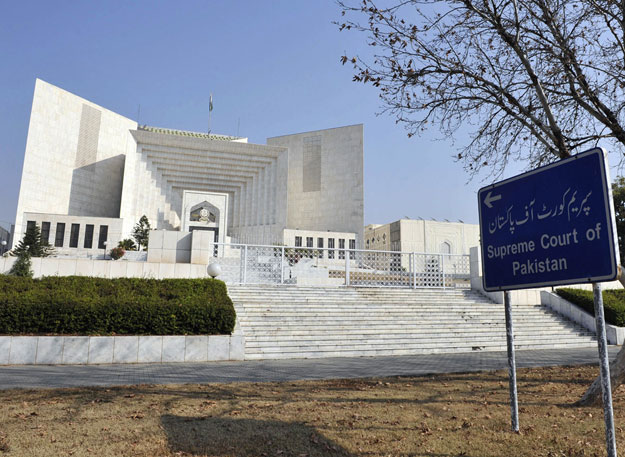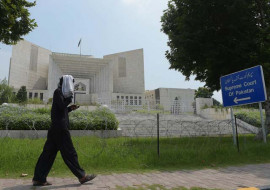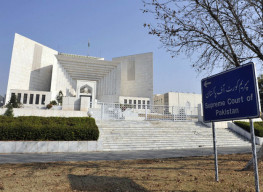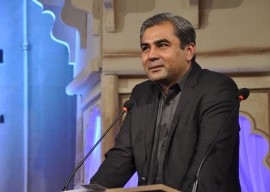
Though the apex court Wednesday upheld the establishment of military courts to try terror suspects in a majority ruling, it also ruled that the superior judiciary could still review any judgment passed by them on the grounds of coram non judice (not before a judge), being without jurisdiction or suffering from mala fide.
Read: Majority verdict: SC rules in favour of military courts
A source told The Express Tribune that the military establishment had expressed reservations over the top court’s verdict to review the ruling of the military courts on specific grounds. “They are consulting legal aides to ascertain if a review petition should be filed against the court’s particular observations.”

Raja Irshad Ahmad, counsel for the country’s spy agencies in a number of cases, also confirmed that he had been consulted for his opinion over the apex court’s August 5 ruling. “I have told them that there is nothing new in this, because on the basis of these grounds, the superior judiciary is already reviewing court martial cases against army men.”
Another lawyer who was consulted in this matter agreed with Ahmad’s view. “Around 120 decisions of military courts are already sub judice in the superior court.”
Meanwhile, a senior law officer expressed satisfaction over the court’s observations and said there was nothing surprising in them. “We are keenly reading the court’s verdict, and if needed, we might file a review petition.”
In his 88-page landmark ruling on Wednesday, Chief Justice Nasirul Mulk observed that the decision to select and refer the case of any accused for trial under the Pakistan Army Act, 1952, as amended, and any order passed or decision taken or sentence awarded in such a trial shall be subject to judicial review. Former Additional Attorney General Tariq Khokhar believes that the accused would approach the superior judiciary against the military courts’ verdicts. “Therefore, the courts will take up their matters and stay the military courts’ proceedings, which will cause considerable delay in the disposal of cases.”
Read: ICJ terms SC's verdict over military courts a blow to human rights
He recommended the prosecution team before the military courts to be vigilant and convict the militants on solid evidences because, ultimately, the record of trial of the accused might be scrutinised by the superior courts.
He also said the court’s observations to review the military courts’ proceedings on particular grounds were common.
Published in The Express Tribune, August 8th, 2015.































1714024018-0/ModiLara-(1)1714024018-0-270x192.webp)









COMMENTS (4)
Comments are moderated and generally will be posted if they are on-topic and not abusive.
For more information, please see our Comments FAQ